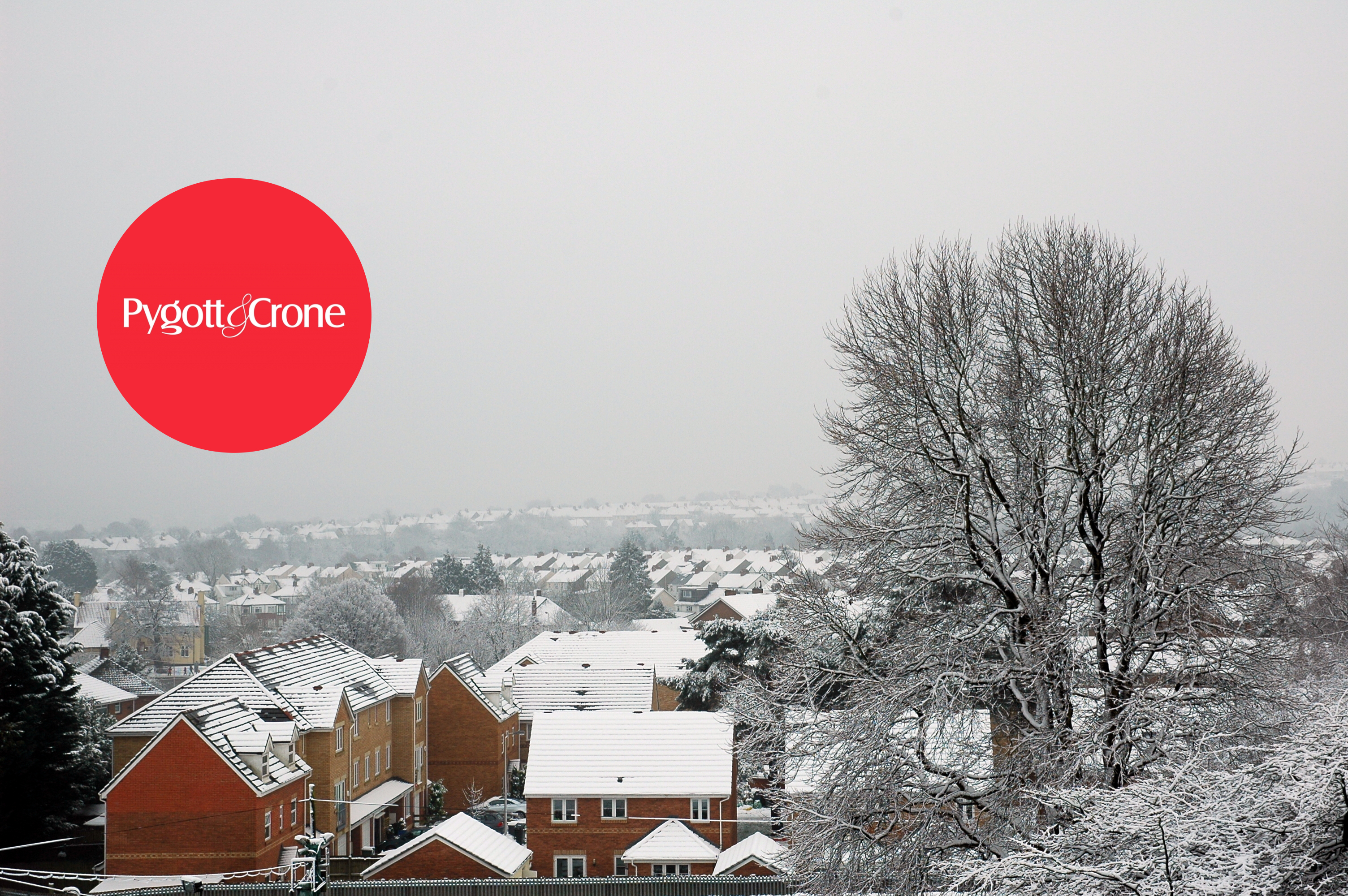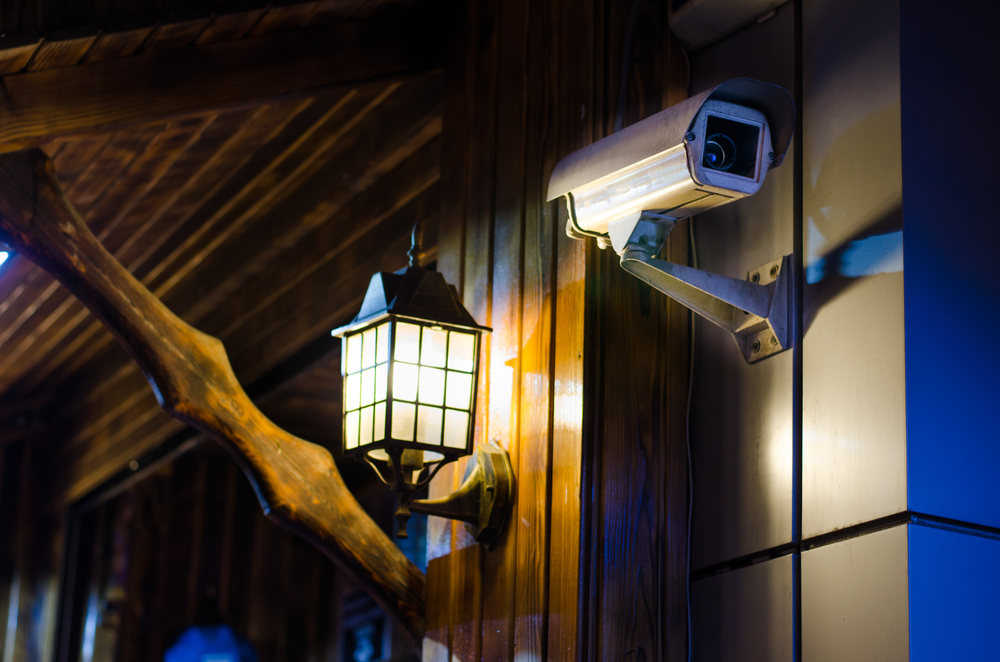|
How to prepare your home for winter
In this month's edition, we're on hand to offer our guidance on how to prepare your home not only for winter, but to make sure that it's as secure as it possibly can be during these colder months.
We also look at how the property market has changed over the last five years, and reveal what individual elements help to make up a property's full price.
How to prepare your home for winter

As the temperatures begin to sink and the days begin to shrink one thing is for certain - winter is upon us. Along with the shorter days and colder temperatures come the wintery pleasures of warming up alongside a roaring fire, long walks in the country and crisp, frosty mornings. However, it’s also important to remember that the winter months can have a harsh effect on our homes, causing problems for heating systems and external fixings alike. Follow this list of tips to prepare your home for the chillier months, and to ensure that your main concern this winter is the choice between a cup of tea or a warming hot chocolate.
Pipe dreams
As the temperatures drop, the water in your pipes can freeze causing them to burst and for major damage to be caused to your home. In order to avoid this, keep an eye out for any gaps in external walls as the cold air could reach the pipes and encourage them to freeze over. Sealing over any gaps in external walls, as well as adding insulation around vulnerable pipes in areas such as the loft and garage could mitigate this problem. Further to staying vigilant to external wall gaps, keeping your heating on a low-level (around 4 degrees) - even when you’re away from your home - will maintain a consistent temperature around pipes, thereby avoiding the problem of pipes freezing over.
Boiler spoiler
When was the last time that you had your boiler checked? A poorly maintained boiler wastes energy and costs more to run, as well as running the risk of leaking carbon monoxide into your home. Having your boiler serviced will reap rewards in the long run, as well as giving you peace of mind in terms of safety and efficiency. Naturally, one of the key components of your boiler system are your radiators - a handy hint to maximise their efficiency is to put kitchen foil behind them for the heat to be reflected back into the room they are in.
Fill the gaps
Around a quarter of the heat lost from your home escapes through the loft, and therefore having good loft insulation is key to staying warm this winter. As well as the loft space, cavity wall insulation can make a real difference to keeping your home warm and energy bills low - with a typical saving of &145 per year saved on energy bills simply through having insulation installed. In terms of cost, there are a number of government grants and subsidy schemes available to help you with the initial outlay of insulating your home and staying warm this winter – so do your research and stay warm for less.
The big switch
If you feel that your winter energy bills are high despite your best efforts to prepare your home for the cold months then give your energy supplier a call and have a chat about being allocated a more cost-effective tariff. Remember that you will never experience a disruption in service if you decide to change suppliers, so feel free to shop around and find the best deal that works for you. You can use online comparison tools as well as literature direct from suppliers to find the most competitive energy rates and offers, so turn up that thermostat and get extra cosy!
Down the drain
As the leaves fall from the trees, drains and gutters can easily become blocked with debris, causing build-ups of water which could make its way into your home in the form of damp. As the temperature drops, these leaves are prone to freezing which can weigh down your guttering and damage external structures. Ensure that your drains and gutters are debris free by checking lower-level guttering on your property and clearing these out by hand as safely as possible - if the lower-levels are blocked then higher levels may also require a closer inspection.
How has the property market changed in the last five years?

The ‘Housing Futures’ survey has been conducted annually by Strutt & Parker since 2013 to examine how the property market has evolved and then utilising this data to identify future trends which will shape the market. The latest version, ‘Housing Futures: New Horizons’, has shown that ‘connectivity seems to be the key for British home movers in 2018. We want to be connected in all areas of our lives...there is a growing requirement for connection, community and convenience,’ according to Vanessa Hale, director of research at Strutt & Parker.
Increased demand for lettings
An increase in the demand for lettings has had a significant impact upon the property market, with research showing that rental increased as a future tenure from 10% to 13% - reflecting its growing popularity. Growth in the private rented sector has seen a near 30% annual increase and encompassed within this sector is the “Build-to-Rent” market. Over the course of the past year, there has been a 45% increase in the delivery of completed “Build-to-Rent” homes with the focus on the type of property now shifting from blocks of flats to family housing, thereby supporting the lettings market in the long-term.
The pace of life dictating property requirements
As the pace of life quickens and we become more accustomed to instantaneous connections, our property requirements are reflecting this desire for connectivity - both virtually to networks and physically to one another. “Good broadband” is now regarded as a necessity for the majority of buyers - up to 57% - and twinned with this desire for “good broadband” is the desire to be closer to family and friends - up to 48%. There should be no surprise, therefore, that city living has increased in popularity as cities offer the greater levels of connectivity and accessibility which is now sought-after by buyers.
Fiscal concerns shaping the property market
As the Housing Futures report states, “over the past five years, the UK has seen turmoil in the political arena as well as in the regulation and taxation of residential property”. This “turmoil” can be seen in the changing shape of the property market; for example, demand for detached houses has significantly dropped over the last 5 years from 83% to 49%, whilst semi-detached homes have become the most popular. This shift away from larger homes indicates a hesitancy amongst buyers to stretch themselves when it comes to their finances, perhaps also explaining the growth in the lettings market as potential buyers become more financially prudent.
Family Ties
Strutt & Parker identified in their housing report ‘26 different property tribes’ - groups of people who are the most prevalent in the property market. One of the ‘tribes’ which will exert the most influence on the property market over the coming years, according to Strutt & Parker, is aptly named ‘The Waltons’ and consists of multi-generational households, much like those seen in years gone by. This multi-generational family home will become more prevalent due to the increasing price of property and the resulting necessity for multiple family members to combine their wealth in order to purchase better homes than if they were to purchase individually, or simply because family members cannot afford to live by themselves. Further to this family aspect in the future purchase of properties, providing financial support for relatives has become one of the key reasons to move home - now up to 22% of those surveyed cite this as a motivator to move home.
As political and policy changes take place throughout the United Kingdom, the property market is flexing to respond to these types of change - this is reflected in the rise of the popularity of the semi-detached home and the continuing growth of the lettings market. Buyers are more aware of their fiscal concerns and more demanding in terms of their requirement to be well-connected to friends, family and wireless networks. With an ageing population continuing to live longer, the power of the “grey pound” will exert itself upon the property market and, combined with younger generations who have a voracious appetite for property both in terms of letting and purchasing, one thing is for certain - the property market remains extremely financially solvent.
What individual elements make up the price of a property?
If you had to rebuild your home from scratch, how much do you think it would cost, and are there any special features which would cost a premium to emulate should the worst happen? According to a new study conducted by Direct Line Premier Insurance, the average person overestimates the rebuild costs for their home by 38%, showing that the general public has little idea when it comes to the bricks-and-mortar cost of rebuilding their properties. Then again, the true value of a property is clearly made up of more than simply the basic construction costs, with other considerations such as local amenities also playing a part in the overall value of a home.
On average, the base construction costs of our homes make up around 59% of the property’s actual value, according to Direct Line. Other considerations which influence the market value of a home include access to local amenities, schools and public transport; these account for over two-fifths of a property’s value. Naturally, there are regional variations in terms of the premium which is paid for these location-based factors and, perhaps somewhat unsurprisingly, it is in London that the highest location premium is levied.
In the capital, a three-bedroom property costs on average &647,000 which is an astonishing &442,571 above the rebuild cost of &205,000 – quite the location premium indeed. In fact, the location premium in London is so high that it is higher than the average market value of homes across the rest of the UK. After London, other locations with higher premiums include Brighton, Bristol and Edinburgh – all with location premiums of 60% or higher when compared to the actual rebuild costs of homes in these areas.
“Although people may be surprised by the amount of value placed on a property’s qualities beyond bricks and mortar, this analysis shows just how much intangible benefits such as; local amenities, location and transport links add to the price of a property,” said Nick Brabham, head of Select Premier Insurance.
The adage of ‘location, location, location’ has long been engrained in the property buyer’s psyche and this new research demonstrates just how tangible that cliché can be, in real monetary terms. An important reflection considering these figures is that of property insurance and the devastating impact which an inaccurate home valuation could have upon an insurance claim, with the effect of over-paying for some and underpaying for others.
Revealed: how to improve your home's security this winter

As the nights are drawing in and we occupy ourselves with the wintery joys of hot chocolate and cosy evenings, it is easy to forget that it is during these wintery months when burglaries are most rife. Lloyds Bank noted that there are 35% more claims for forced burglary during the darker months of the year, with criminals emboldened by the shorter days. Follow our helpful hints and tips to ensure that you can enjoy the winter months without any other worries apart from who has turned up that thermostat!
Doors
Did you know that over a third of burglars use the front door? It seems like such a simple fix, but this winter remember to secure your doors to ensure that you don’t have any unwelcome guests. Inspect all your exterior doors to ensure that the frames are strong and in good condition and don’t forget to check the hinges as well. If your door has a mailbox, then ensure that nobody can reach through by installing a mailbox protector.
Windows
As well as doors being popular entry points for burglars, windows are also amongst the most common entry points for break-ins. It’s unlikely that you will be leaving your windows open with the temperatures currently plummeting, however, the latches on your windows can prove to be ineffective if put under stress. To stay safe this winter and beyond, you can improve the security credentials of your windows by adding locks or key operated levers which will prove to be much sturdier than the original fixings.
Lights
There is a clear relationship between the darker nights and higher incidence of burglaries – and that is due to the cover which the dark of the winter months provides to would-be criminals. Illuminate your home using outdoor lights in order to make your home a less appealing option to potential security risks; lights on pathways and in gardens will eliminate those darker areas. The use of motion lights is becoming more and more popular, with the element of surprise of a light turning on proving to be an effective deterrent.
Wi-Fi
When considering your home’s security, you would be forgiven for only protecting the bricks and mortar, however, a key consideration in these modern times should be your wi-fi network. Your home wi-fi is a potential pathway for intruders into your personal and financial information, and with the ever-increasing popularity of home automation apps can also make your home vulnerable to break-ins. To protect your wireless network, ensure that you are using a secure router and that you have enabled WPA (Wi-Fi protected access) or WPA2 encryption – as well as the usual staples such as a strong password and firewall protections.
Neighbours
Life these days is extremely fast-paced and British sensibilities often drive us to simply say a polite “good morning” and “good evening” to our neighbours, with little more conversation shared. These seemingly inconsequential conversations could also be used to improve your home security, however, as well as fostering better relationships with those living next to us. Use those early-morning interactions with your neighbours to discuss holidays and upcoming plans, so that they will be aware if there is something untoward happening at your home. Neighbours can also move parcels or letters left on your doorstep so that potential burglars won’t be made aware of your absence.
<< News
|
|